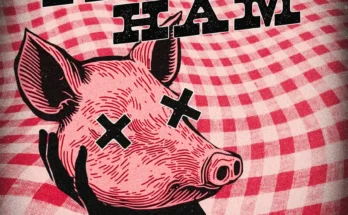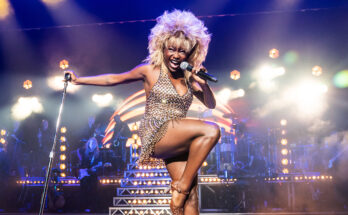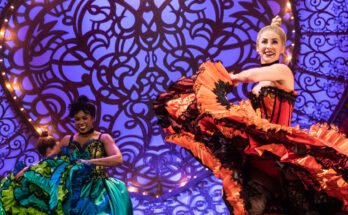As a child, internationally renowned director, choreographer and performer Debbie Allen spent her summers in Baton Rouge. “I grew up with the tastes, the sounds, the smells, the ghost stories … and the unchaperoned trips to the bayou, where we did things we weren’t supposed to do as children,” she says. “I gazed at the Mississippi and ran along the shores. I’ve been there churning butter and shucking oysters.” During those summers, her family would take trips to “the big city” of New Orleans, which impressed her as a surpassingly unique musical and ethnic melting pot.
Those childhood impressions of New Orleans resonate throughout Twist, the world premiere musical Allen has helped sharpen and bring to the Alliance stage.
Allen first heard about the project two years ago from Tena Clark, who wrote the lyrics and co-wrote the music with Gary Prim. At the time, Allen was directing Songs of Soul and Inspiration, a concert featuring Clark’s music at Philips Arena in downtown Atlanta.
“She said, ‘I have this musical I was working on, and I’m thinking of pulling it out again,'” Allen remembers. “When she first introduced me to the material and I heard the music … the storytelling totally transcends Dickens, and the time frame makes it, culturally, so relevant. The music in this — you hear it one time and you sing it over and over and over — it really touched me, and I could see what I could do with it.” Last winter, when Allen was chosen to be the one to direct and choreograph the final version, she was overjoyed.
“I just love this project,” she says. “Right now, in this world, we’re so sensitive about what’s going on with young people: the horror of Haiti and what’s going on with the orphans; and the whole situation in the Gulf leaving people without work. … [Twist] is a story about greed and the hardships that people have to go through if they don’t have money. But it’s also about love and people who care, who reach out to help when they see the need.”
The title character Twist, a young mulatto boy, has been abandoned because of racial hatred, Allen says, and grows up taunted and demeaned because of his racial mix. As a child, Allen also experienced the effect racism can have on young people.
“A big part of my drive [to succeed] had to do with growing up in the segregated South,” she explains. “I wanted to dance, and the big schools were segregated; I couldn’t go. So, my mom packed us up and moved us to Mexico [where] no one cared about color and I could go anywhere.”
Allen says her mother gave her a feeling of belonging to the universe as well as the understanding that things change because they must, and that she would have to find her own way until they did. When Allen had children of her own, she brought them with her whenever she worked overseas to pass on some of that wisdom. “I wanted [my children] to see who I am for real and see the world, see themselves in the world, see what America is and why America is vital.”
There’s no place like home, she says with a laugh, even with the challenges that still exist for people of color. So much has changed.
“It’s hard to want to dance and not be able to go to dance class,” she adds. “You can’t even imagine that [happening] now, can you?”
One of Allen’s lifelong dreams was to open her own dance studio, which she did almost a decade ago in Los Angeles. The Debbie Allen Dance Academy (DADA) teaches classical, modern and ethnic forms of dance from a variety of cultural backgrounds. It is designed to give children the tools they need to succeed not only in the performing arts, but also in life.
Working with children is an experience that has come in handy on this project. “We have a lot of children in the show,” Allen says. “About 11.” Auditions were held in cities across the country to cast the role of Twist and the children’s chorus.
“We have four amazing kids from Atlanta … you have a lot of talented kids [here],” she says. “Twist, [played by Alaman Diadhiou], came from Los Angeles. He’s actually one of my students; he’s been in my school since he was four years old. Academically, he’s one of the smartest kids. His father’s African, his mother’s white, he’s beautiful, and he dances up a storm. You look at him and you just melt.”
That kind of charisma is necessary for a show like Twist, which deals with complex emotions and societal issues. “[Audiences] are going to experience a lot of different things,” Allen says. “Some are dark. Some are full of joy. Some are so vibrant, and some are so painful. It runs the whole gamut of emotions.”
And then there’s the music, which is amazing. “Hopefully, they will all be singing the music,” Allen says. “This is the kind of show they’ll want to see more than once.”



